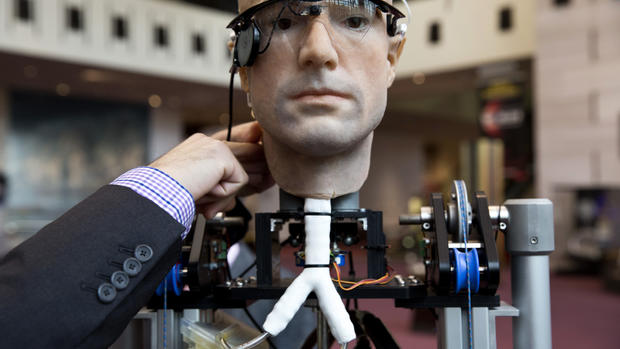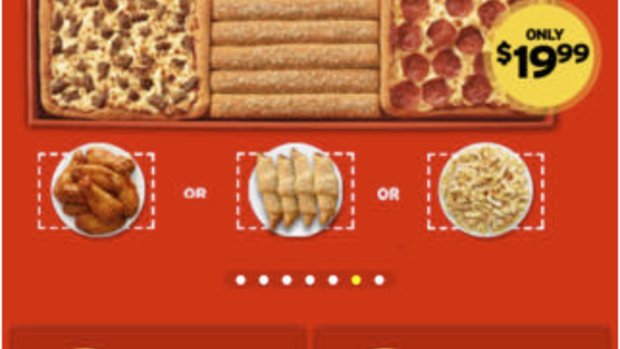Healthy fast-food eatery replaces humans with high-tech
Food service is going high-tech, in the shadow of Silicon Valley.
San Francisco is home to a futuristic eatery with a virtual cashier putting change on the menu, reports CBS News correspondent John Blackstone.
At the new restaurant called Eatsa, don't look for servers or cashiers, they've been replaced by touch screens.
Customers order and pay on a tablet.
For those who are not technologically challenged, it works pretty easily. Your food then miraculously appears behind another touch screen with your name on it.
"I don't know what goes on in there. It's like a black magic room," customer Sam Miraglia said.
Tim Young knows what goes on in the back -- he's cofounder and CEO of Eatsa.
"So it is a proprietary system, but there are absolutely people back there, but really it's all about using technology to make their jobs more efficient," Young said.
The menu is completely vegetarian. Eatsa's goal is to make healthy food more accessible using technology.
"I mean, it is a lot more than seeds and quite frankly I think our food stands on its own," Young said. "I mean it's a mixture of a lot of different ingredients that come together and make a really, really flavorful profile."
To some, Eatsa looks vaguely familiar.
"It reminds me of the automat-- very popular in New York City in the '50s," customer Mike Butler said.
Back then, the automat seemed to be the height of technology, but you could still see humans on the other side of the door.
"We've heard people compare us to the automat, it makes sense, I can see the similarities, but their food was not made-to-order and fresh," Young said. "That food was pre-packaged food and that's a fundamental difference between what we're doing."
Eatsa is not alone in replacing humans with touch screens. McDonald's and Panera are among others in the food business bringing more automation to their stores. But a larger shift in that direction could affect millions of fast-food workers.
"There could be a shift in the type of jobs associated with the restaurant industry at the disadvantage of the people who typically work in these restaurants," Bon Appétit associate restaurant editor Julia Kramer said.
Young, however, doesn't think so.
"It's not putting anyone out of work; it's making their jobs more efficient and enjoyable, I like to think," he said.
Eatsa already has plans to expand to other cities.
The early crowds are promising, but Eatsa's model will test whether fast-food consumers have an appetite for change.

